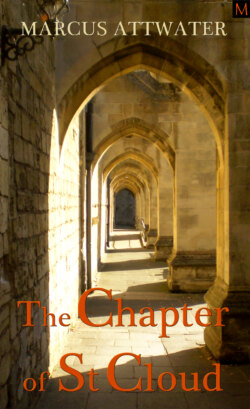Читать книгу The Chapter of St Cloud - Marcus Attwater - Страница 6
На сайте Литреса книга снята с продажи.
4
ОглавлениеHe remembers the building of the abbey. He remembers the great blocks of limestone that went into raising the walls, the churning watermill and the terrible draught in the refectory when the wind blew from the east. He remembers the chants and the prayers in the night; the simple life of the monks, away from the world, before greed and doubt and ambition returned. He remembers the scholars of the emperor's court, many years later, when the scriptorium was never empty, and how the name of the abbey spread far and wide. He remembers the return to the Rule, and the first daughters and their priors, bright and zealous. Weren't those days the best? With houses all over France and England, with scholars at Paris and a voice in the curia. Oh, the books and the good works he remembers, and the great number of monks and nuns who sheltered under the abbey's wings. He had been proud of his flock. He had shrugged at the rise of the new preaching orders, he had felt rooted in that ancient house on the Seine. Safe, he had believed they were, safe for years, even when they grew smaller, just a few abbeys, a priory here and there. Those years all run together now. They must have been happy. There must have been peace, for he remembers the violence that ended it. He remembers the king's soldiers who took away the plate and the reliquaries. He remembers the abandoned cloisters, the years of hiding, of furtive meetings and unspoken words. Years of fear and silent prayer, right until the creeping words exploded into blustering debate, every man shouting for his own god. He remembers the stones of the kingless rabble that smashed a church's windows into painful shards, and the pamphleteers' dripping poison. But they had come out of that ordeal strengthened, renewed. They had learned to be quiet, had learned patience and wisdom. No worldly ambition marred the abbey's new face. No blocks of stone marked its place now, nothing that could be pulled down. It lived in his mind, and in the souls of his followers. And the years that succeeded were strange, but they have brought him here, to this place and time, where he can survey history and maybe make sense of it, all the way from that first course of masonry until now. But there is so much he remembers, there is too much. The abbey is there, the abbey is eternal, but he knows there were thoughts before he knew even that.
He recalls, but dimly, his proud, long-haired brothers, his stern-faced grandmother, who loved him. His memory of that time is confused and its colours are crude. He is not sure what really happened, what he was told later, what is true or false. He knows they were his older brothers, and they died where he was spared. It's not so strange that he doesn't remember them well. He was only a child. And after all, it was nearly fifteen-hundred years ago.
